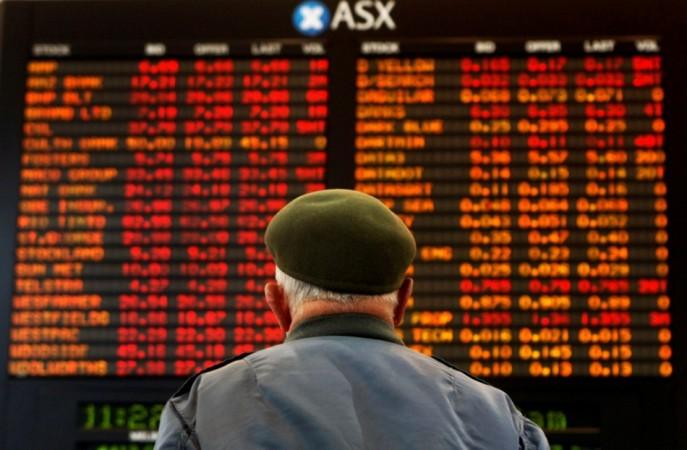
Increasing optimism that China and the US will be able to hammer out a deal to help ease their trade war provided the impetus for more gains across Asian markets on Wednesday.
After taking a battering in December and suffering a shaky start to 2019, confidence is slowly returning to equity trading floors, though dealers remain on edge.
Federal Reserve boss Jerome Powell provided the platform for a rally last week when he said the central bank had no "pre-set" plan for lifting interest rates and was "listening" to markets, signalling that the pace of hikes could slow this year.
Fear of higher borrowing rates was a major cause of last year's stocks losses. The mood among dealers has improved markedly this week as officials from China and the US hunker down for trade negotiations in Beijing that have extended into a third day.
US President Donald Trump on Tuesday described them as going "very well". Bloomberg also reported White House sources as saying Trump is keen to get a deal done in order to boost stock markets, which he regards as a gauge of his success.
Also, the Wall Street Journal said the two were moving in the right direction, with China ready to buy more US goods and services, while further talks at Cabinet level were being lined up next week.
The progress in talks "is fuelling investor optimism suggesting there might be a light at the end of the trade war tumultuous tunnel", said Stephen Innes, head of Asia-Pacific trade at OANDA.
In morning trade Hong Kong rose 2.4 per cent and Shanghai added 1.6 per cent, while Tokyo went into the break 1.3 per cent higher. Sydney jumped 0.9 per cent with Singapore, while Taipei, Manila and Wellington were each more than one per cent higher.
There were also healthy gains in Jakarta. Seoul added 1.8 per cent as North Korean leader Kim Jong Un visits Beijing with speculation swirling that he will meet Trump for a second summit later this year.
The gains also come after a strong reading on US jobs creation Friday, which soothed worries that the US economy was slowing down, and ahead of the corporate earnings season. "When the dust settles, if it ever does, the fear of recession will prove to be premature," Bob Doll, an analyst at Nuveen Asset Management, told Bloomberg TV.
"We will have growth, yes, slowed from the 2018 pace and we will have... earnings, yes, slowed from the 2018 pace, but acceptable for investors and that will allow equity markets to move higher." The dollar continued to face selling against higher-yielding currencies as a new-found confidence saw investors seek out riskier assets.
The South African rand, Australian dollar and South Korean won were among the best performers. Oil prices -- which have tumbled in recent months partly because of worries about the impact on demand of the China-US trade war -- were also up with WTI back at about USD 50 for the first time in more than three weeks.
WTI and Brent are up around 10 per cent already this year, having plunged by about a third from their four-year highs touched in early October on supply-and-demand worries. The gains have also been helped by hopes that OPEC and other major producers including Russia will put the brakes on output this year.
"The market is clearly rebounding from sharply oversold territory," said Michael Tran, commodities strategist at RBC Capital Markets LLC.
"The macro outlook looks and feels a lot less dire than it did just a couple of weeks ago."

















